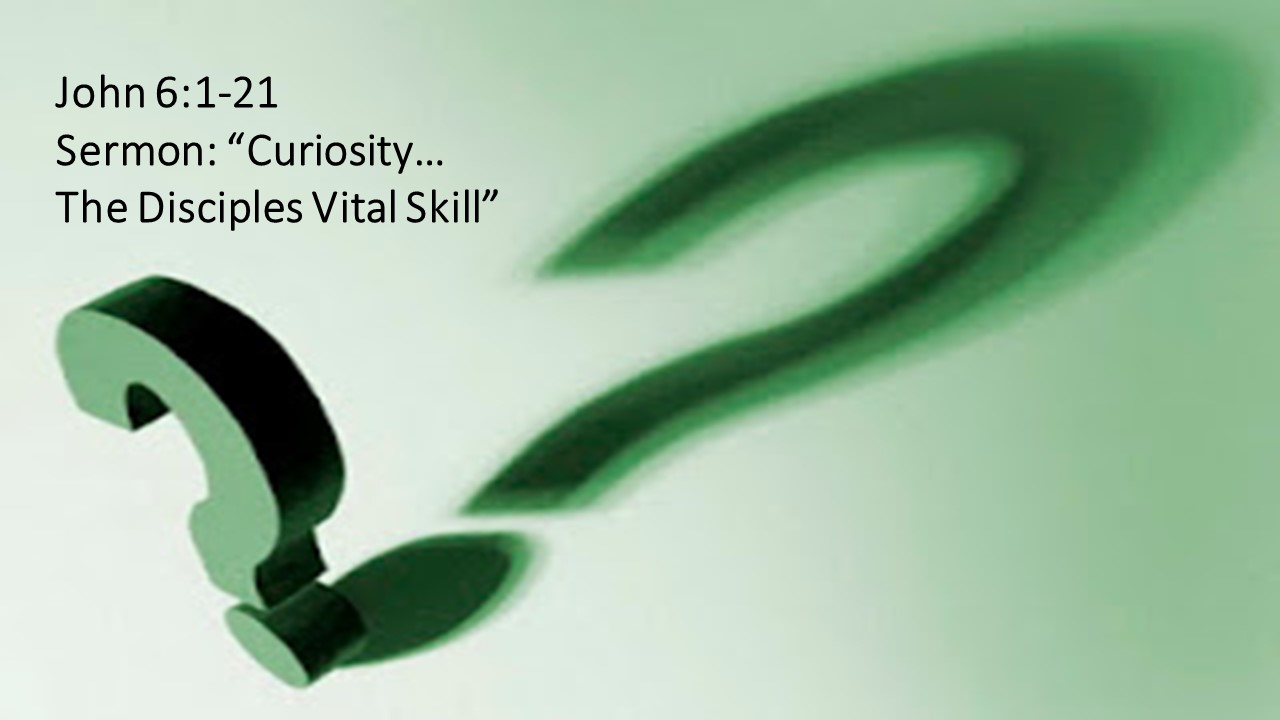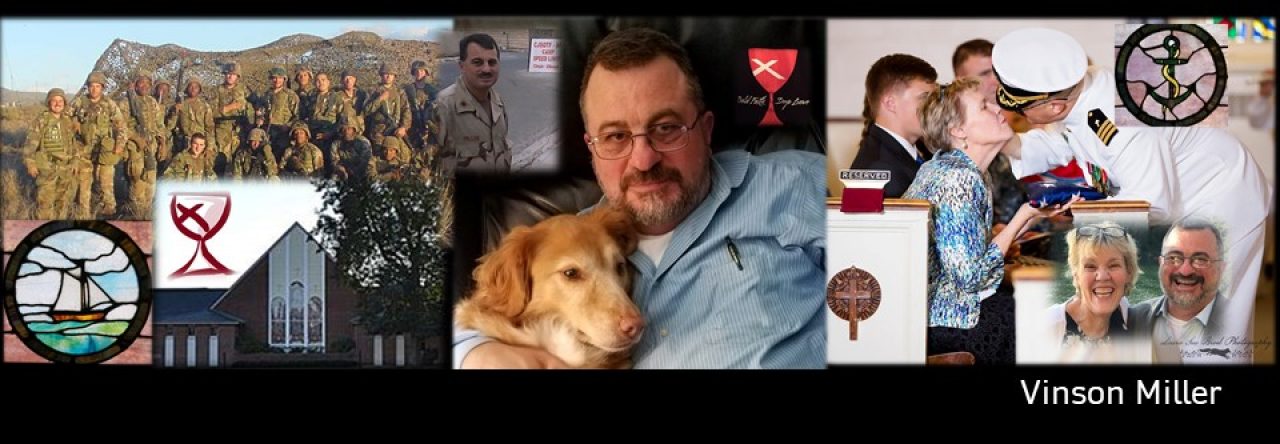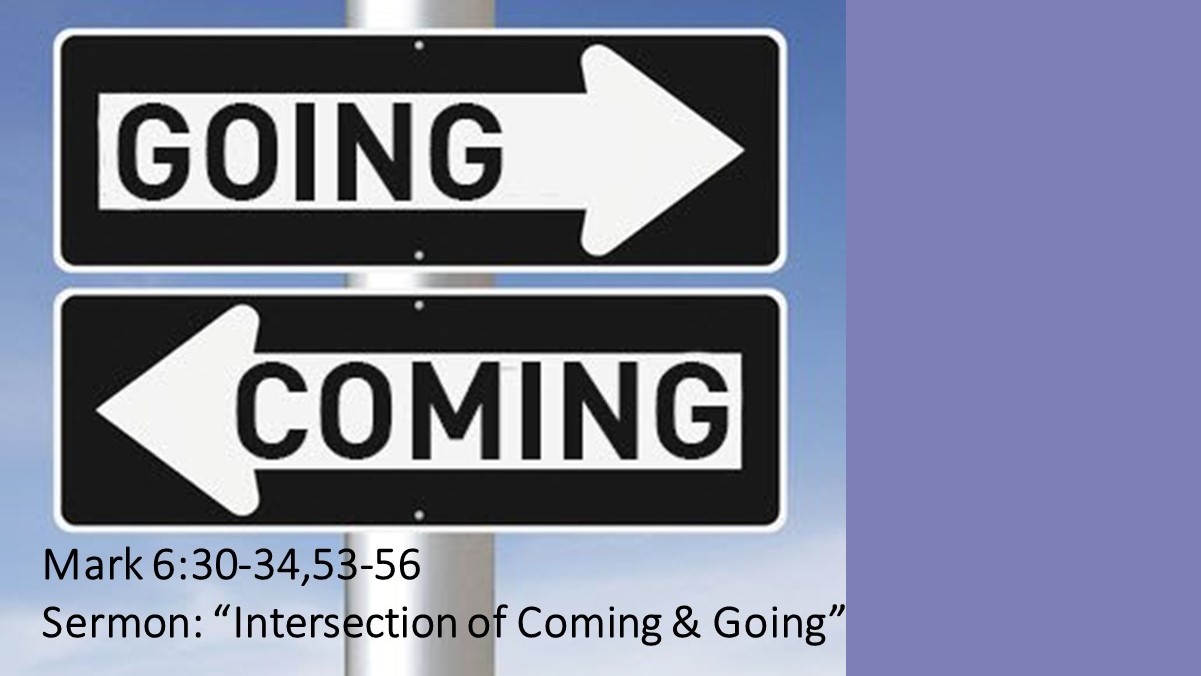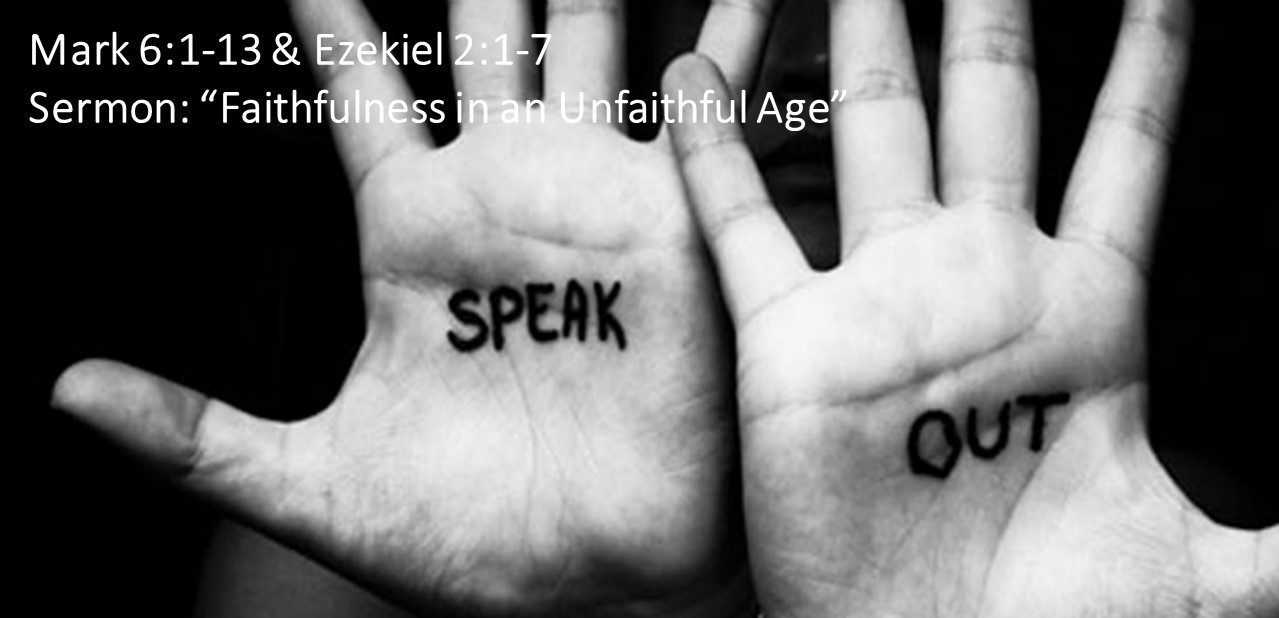 Sermon of 29 Jul 2018, preached at First Christian Church (Disciples of Christ), Hampton, Va. One of the great values I obtained out of my mentors in early life and in going through a Clinical Pastoral Education (CPE) residency, has been the value of curiosity. The longer I live, the more I realize that in conjunction with humility, it can transform all relationships – and most of all, that with our Lord.
Sermon of 29 Jul 2018, preached at First Christian Church (Disciples of Christ), Hampton, Va. One of the great values I obtained out of my mentors in early life and in going through a Clinical Pastoral Education (CPE) residency, has been the value of curiosity. The longer I live, the more I realize that in conjunction with humility, it can transform all relationships – and most of all, that with our Lord.
______________________________
GOSPEL OF JOHN 6:1-21
After this Jesus went to the other side of the Sea of Galilee, also called the Sea of Tiberias. A large crowd kept following him, because they saw the signs that he was doing for the sick. Jesus went up the mountain and sat down there with his disciples. Now the Passover, the festival of the Jews, was near. When he looked up and saw a large crowd coming toward him, Jesus said to Philip, “Where are we to buy bread for these people to eat?” He said this to test him, for he himself knew what he was going to do. Philip answered him, “Six months’ wages would not buy enough bread for each of them to get a little.” One of his disciples, Andrew, Simon Peter’s brother, said to him, “There is a boy here who has five barley loaves and two fish. But what are they among so many people?” Jesus said, “Make the people sit down.” Now there was a great deal of grass in the place; so they sat down, about five thousand in all. Then Jesus took the loaves, and when he had given thanks, he distributed them to those who were seated; so also the fish, as much as they wanted. When they were satisfied, he told his disciples, “Gather up the fragments left over, so that nothing may be lost.” So they gathered them up, and from the fragments of the five barley loaves, left by those who had eaten, they filled twelve baskets. When the people saw the sign that he had done, they began to say, “This is indeed the prophet who is to come into the world.” When Jesus realized that they were about to come and take him by force to make him king, he withdrew again to the mountain by himself. When evening came, his disciples went down to the sea, got into a boat, and started across the sea to Capernaum. It was now dark, and Jesus had not yet come to them. The sea became rough because a strong wind was blowing. When they had rowed about three or four miles, they saw Jesus walking on the sea and coming near the boat, and they were terrified. But he said to them, “It is I; do not be afraid.” Then they wanted to take him into the boat, and immediately the boat reached the land toward which they were going.
______________________________________
INTRODUCTION
Maggie, our almost 10-year old Golden Retriever/Australian Shepherd mix can be insistent.
Very.
Sometimes annoyingly so.
She doesn’t just shrug and wander off. Like the woman before the unrighteous judge, of whom Jesus once spoke, Maggie simply does not let up until she gets her way.
She will come up, smile and at the same moment make this “Harump!” kind of sound with a bit of whine tagged on at the end. With this, Maggie will throw her whole body back about a half foot.
She will keep on doing this until she has backed up across the entire room.
If one of us hasn’t responded, she will come up close and start the show all over again, by first using her snort like a shovel under one’s arm, throwing in a high-pitched yelp that is equal to fingernails on an old-fashioned chalkboard.
Does she want to go outside? Nope. Maggie will just stand there, wag and smile.
If not already fed, it might be close to 6 pm and she knows it’s time. But if that isn’t it?
Maybe she is out of water. The dogs do go through a lot.
Sometimes, it is none of those three things. For all the MANY different whines, moans and barks she has mastered, one of us might end up saying, “MAGGIE, WHAT DO YOU WANT?”
She’ll just stand there, wag her tag, and smile.
It may turn out, she just wants Simon, the Lab/Newfoundland mix to get up from where he is, so she can have his spot. Whatever the case, like charades, Maggie leads us onward until we figure it out.
WHY I BRING THIS UP
Theoretically it should be much simpler for people to make clear what we are seeking. However, along the way in life about 20 years ago I came across a resonating insight of the late American psychiatrist, Karl Menninger, in which he noted that for people – “The identified need is seldom the real need.”
FOR INSTANCE
It’s charades indeed!
For instance, we hear the words of the Gospel read this morning.
The people are hungry for signs. They are hungry for bread. It has been observed that good comes to those who follow Jesus, and so the expectations of the crowd are awakened. As another has noted, “we want the big things. Healing from horrible diseases. Instant money when the house the bills are due. A miracle for the child who cannot overcome addictions. Sometimes this is the miracle that we get.”
But what is their real need?
The disciples are pushing hard against the sea, rowing all it’s worth for shore.
They seem to just want to get to shore, and off a troubled sea.
But what is their real need?
When hearing its telling from John, I find myself reminded of a phrase Julie said to me back when we were dating, about how “we live in the mystery.” While John carefully unfolds the narrative, he makes us do some serious pondering. Nothing is handed to us, no more than it was handed to the disciples.
We are disciples, after all. Students.
OK, so what do we know about this all-so-familiar story… the only miracle recorded in all four Gospels. It clearly it had much to say to the early church – and to us now, about the activity of Jesus in human life.
A test for disciples, with the crowd as his teaching aid, following this miracle worker “because they saw the signs that he was doing for the sick.” Then, having withdrawn to the mountain with his disciples, Jesus sees “a large crowd coming toward him,” and singles out Philip for a question to which he already knew the answer, “Where are we to buy bread for these people to eat?”
Why would Jesus do that?
Philip immediately begins number-crunching. A good estimate is six months’ worth of wages, something they probably did not have in hand. Andrew, helpfully pipes up about a boy having 5 loaves of bread and 2 fish, but it is a sad picture of a rather empty cupboard.
They are dutiful, but missing something.
It is easy to go after the hard numbers. The on-the-surface facts. If we’re honest, it is often the first place we go. But was that really what Jesus was asking?
Then there are people themselves, who perceive the miracle only when after having eaten that they see all the baskets of leftovers from that small meal. This is the trap John sets for us every time we draw a conclusion about who Jesus is, rather than ask a question.
“When the people saw the sign that he (Jesus) had done, they began to say, ‘This is indeed the prophet who is to come into the world.’ When Jesus realized that they were about to come and take him by force to make him king, he withdrew again to the mountain by himself.“
We can notice they had drawn a conclusion and the wrong one at that, as to his kingship.
But then John immediately places the second act to this miracle story, as the disciples basically road-trip Jesus by starting across the sea to Capernaum, since, as John notes, “it was now dark, and Jesus had not yet come to them.”
Don’t you find that interesting?
Hard rowing for three or four miles against the wind in the darkness, they look over and see “Jesus walking on the sea and coming near the boat, and they were terrified.”
What’s his response?
‘It is I; do not be afraid.’” Ego Eimi… I am. The same words spoken of God at the burning bush when Moses inquired to whom he was speaking.
We can talk about Jesus and the bread, or him catching up with the disciples by walking on the water, but in end, is it possible that the two joined stories are fundamentally about the presence of Christ, whatever one is facing?
Could they simply be about assurance of his care?
An Anglican Bishop in Uganda has observed: “One of the problems of evangelical Christianity is that we have no questions; we just have answers. In fact, we tell the world, ‘Jesus is the answer’… but what is the question?”
And that really is the rub, and having friends who range from devout Christians to antagonistic atheists, it is the openness to curiosity, to tough questions even, that is the make or break as to why some people may like Jesus but not his church. A life lived absent of curiosity is a life of conclusions, and I would suggest closes doors to people and just as much to the work of the Holy Spirit.
But what if we instead take a step back from that and ponder anew the person of Jesus evident in the Gospels?
B.C. Before Church, so to speak.
Have you ever noticed how often he opened or closed interactions, stories, and parables with a question, forcing his listeners to engage both their hearts and minds, while nurturing their spiritual curiosity?
Jesus didn’t invent this. As Winn Collier writes in Holy Curiosity, “God asked a question to the two hiding in the garden (Adam and Eve, saying “where are you?”, and he has been asking questions to us ever since.” Since we are created in the image of God, it should be no surprise then that the questions go both ways, or that Jesus would invite us to questions.
Think about it. For instance, Moses “turned aside,” it is written to look at the strange site of a bush burning but not consumed, and there encountered God [see Exodus 3:1-3], or how Jacob showed himself unafraid to ask God his name [see Genesis 32:29].
It thus seems that before us are two paths we can take, as a wise friend and long-ago teacher of mine shared, one modeled by two detectives:
There’s the path of “Sherlock Holmes.” He observes everything. Misses nothing. Links facts to facts, determines who the guilty party is and how the murderer did the dastardly deed. Sherlock is all about the conclusions, but if you notice – his life is also devoid of joy.
Then there’s the path of “Columbo,” which one can still find in reruns. Peter Falk driving around in his dusty old Fiat, wearing his favorite and too well-worn overcoat, trying not to leave cigar ashes everywhere, and basically not impressing whomever he was investigating for murder. At least at first.
In that creative listening of curiosity absent judgment, the murderer ends up helping him solve the crime, because Columbo was non-threatening, just always really curious, picking up things, asking about them, and ultimately allowing the conclusions to become self-evident in such a way that led to a confession. If you notice – his life was of joy, talking about his dog, his wife, and even getting smiles from the people he arrested.
With a bit of a mystic’s insight, though a psychiatrist, the late Karl Menninger spoke of such listening as “a magnetic and strange thing, a creative force. The friends who listen to us are the ones we move toward. When we are listened to, it creates us, makes us unfold and expand.” After all, aren’t those the encounters that help clarify what we need most?
SO WHAT?
As a faithful student of Jesus., I suspect this is what John is pointing us to – that absent of curiosity, absent of the holy questions, we may have some nifty conclusions, but they may well miss the mark in discovering who Jesus is and what that means for us. And yes, joy will likely likewise be absent, because joy runs in parallel with curiosity.
After all, isn’t’ that the table of joy to which we’ve been invited? The holy dinner table around which we bring our curiosity about things of God, are surprised by grace, the questions may flow, and the Spirit abides?
Amen.
_____________________________
Pastor’s Note: Quote of the Anglican Bishop, in Uganda, Rev. Dr. Zac Niringiye, found in: https://www.wheaton.edu/academics/the-liberal-arts-at-wheaton-college/student-reflections-on-the-liberal-arts/reflections-on-curiosity-and-wisdom/.
©2018 by Vinson W. Miller, Hampton VA.


